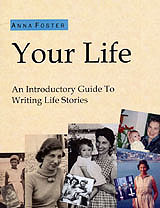
Home > Your Life Writing Guide Contents > Editing
10. Editing

The work of professional writers is always edited before publication and you may need to employ an editor. He or she will ensure that the story is well written and that it is factually correct.
A privately published book need not be as comprehensively edited as a commercial book.
1. Will your book be read by family and close friends only?
You may not require a professional editor, but ask a family member or a friend to read the text for sense and to pick up spelling and grammatical errors. It's amazing what a fresh pair of eyes will spot.
You should also reread the entire text and make any changes.
If you have hand-written or typed your manuscript, transcribe it onto a computer - it's faster and easier to edit this way (unless, of course, you are binding your hand-written or typed pages into a ring binder).
Make sure that any changes are added to the computerised version.
2. Is there any controversial material?
You may need to get your manuscript read by a lawyer, even if it is purely for private publication.
Such material might include the outcome of a court case (the terms of a final settlement may be bound by a confidentiality clause) or any accusations made against an individual or organisation.
3. Is any material taken from published sources?
Such material includes poems, drawings, photographs and quotations, which may be subject to copyright law.
Be careful about downloading any information from the internet without checking both the facts and the copyright. See Contacts.
If your book is for private publication or you can prove an educational or non-profit-making purpose, copyright is often given for free. An acknowledgement of the source may suffice.
4. Will you sell your book?
You are advised to have a professional editor read your manuscript. Itís amateurish to publish your book with incorrect spellings and poor grammar.
An Editorís Duties
An editor will check the following:
- Style, grammar, spelling. Ensure consistency throughout the text.
- Rewriting. Expand or reduce the text as necessary.
- Chapters. An editor can divide your book into chapters if you have not already done so.
- Structure. Is your book balanced structurally? It's unlikely that you'll get this far and decide to restructure radically, but make sure the various periods in your life have been given due emphasis.
- Proof-reading. Most printers will provide a proof copy, though some will charge.
Case study Ė Indira Reclaims Her Life
Indira had been trapped in a painful marriage and was in the middle of a complicated divorce. English was not her first language.
She began to write her story, which began in Pakistan in the 1960s, led to education in Europe and, at the age of 25, marriage to a Canadian. The couple settled in Toronto.
Cultural and religious problems in the marriage soon surfaced, but Indira did not feel strong enough to leave her marriage for another 12 years, during which time she and her husband had two children.
When the marriage collapsed, Indira experienced a breakdown. Writing the story became part of her therapy.
However, her writing needed heavy editing: long, incoherent sentences were broken down into smaller units and rambling stories rewritten with brevity.
Painful emotions were described, but repeated endlessly throughout the text, reignited every time a new story was recorded.
YouByYou Books helped Indira give a structure to the story. She rewrote some of the incidents, leaving out the emotional turmoil, which in turn allowed the reader to respond.
The book remains unpublished. Indira does not yet feel ready to tell the outside world of her story. She fears it will incite further rage on the part of her ex-husband and may affect her professional position as a lawyer.
She hopes to publish it when her children are older and that it may give help to women who suffer from domestic abuse.
We worked on the book entirely by email. It might seem that for such a personal story, face-to-face contact would be essential, but email gave Indira privacy as she wrote and me flexibility as editor.
Do you have any questions from this section? Please email me and I will try to help you.

